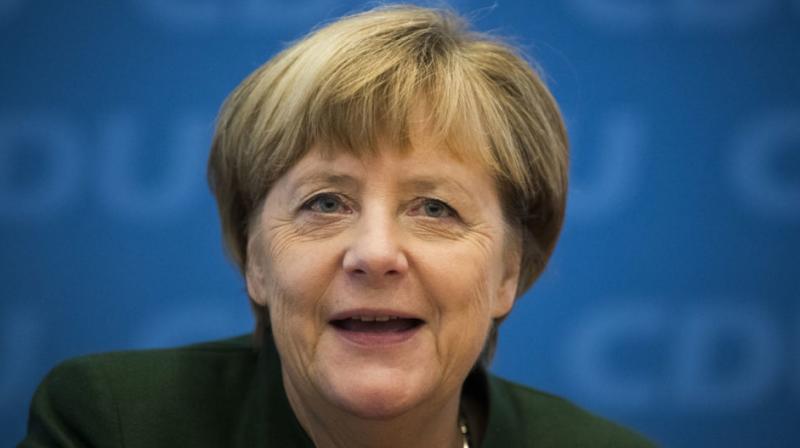Germany’s SPD to vote on coalition talks with Merkel’s conservatives
23 January, 2018

Around 600 delegates, meeting in Bonn, will debate and vote on whether their leaders should push ahead with coalition talks on renewing an alliance with Merkel’s conservatives that took office in 2013. (Photo: File/AFP)
The move aims to bring Europe’s economic powerhouse one step closer to a stable government.
Germany’s center-left Social Democrats (SPD) will decide on Sunday whether to start formal coalition talks with Chancellor Angela Merkel’s conservatives, a move which would bring Europe’s economic powerhouse one step closer to a stable government.
SPD leader Martin Schulz is facing a strong backlash from the party’s left and youth wings, which argue that the SPD should reinvent itself in opposition after scoring its worst election result in September since Germany became a federal republic in 1949.
Around 600 delegates, meeting in Bonn, will debate and vote on whether their leaders should push ahead with coalition talks on renewing an alliance with Merkel’s conservatives that took office in 2013.
The two blocs, which both bled support to the far right in the September 24 election, struck a preliminary deal last week but critics, including the party’s youth wing leader Kevin Kuehnert, say the agreed blueprint does not bear enough of the SPD’s hallmarks.
Sunday’s vote will also be watched closely abroad as Germany has Europe’s largest economy and Merkel has long played a leading role in the continent’s economic and security affairs.
Senior Social Democrats have cited progress in efforts to win support for formal talks after the SPD’s biggest regional branch in North Rhine-Westphalia (NRW) recommended its members vote in favor of entering negotiations - on condition that Schulz push for more concessions on labor, health and migration policies.
SPD parliamentary leader Andrea Nahles said she expected formal talks to happen. “Nevertheless, I ask everyone in my party to take responsibility: Please consider the consequences if this government option fails,” she told Welt am Sonntag.
Deadlock
A negative vote by the SPD would prolong political deadlock at a time when Germany’s humming economy is producing record budget surpluses and French President Emmanuel Macron is counting on Berlin to join forces and overhaul the European Union in the light of Britain’s decision to leave the bloc.
Possible scenarios in case of a rejection by the SPD would include new elections or a minority government for what would be the first time in Germany’s post-war era.
The leader of the SPD’s biggest regional branch in NRW, Michael Groschek, said over the weekend he also expected a positive outcome, though the final coalition deal would “for certain” have to look different from the blueprint.
The SPD branch in that region wants a final coalition agreement to include a call to abolish Germany’s dual public-private health insurance system in favor of a single citizen’s insurance, to scale back temporary employment contracts and to allow family reunions for asylum seekers suffering unusual hardship.
The demand for more concessions was immediately rejected by leading conservatives, while business associations urged the SPD delegates to back coalition talks, saying a rejection could plunge the country into a severe political crisis.
The SPD special congress is not the last hurdle, however. All party members will get to vote on a final coalition deal, if there is one.
